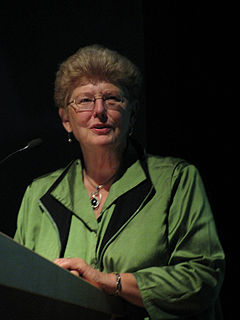A Quote by Mason Cooley
Literary criticism now is all pranks and polemics.
Related Quotes
I don't have a very high opinion, actually, of the world of criticism - or the practice of criticism. I think I admire art criticism, criticism of painting and sculpture, far more than I do that of say films and books, literary or film criticism. But I don't much like the practice. I think there are an awful lot of bad people in it.
First one gets works of art, then criticism of them, then criticism of the criticism, and, finally, a book on The Literary Situation , a book which tells you all about writers, critics, publishing, paperbacked books, the tendencies of the (literary) time, what sells and how much, what writers wear and drink and want, what their wives wear and drink and want, and so on.
My literary criticism has become less specifically academic. I was really writing literary history in The New Poetic, but my general practice of writing literary criticism is pretty much what it always has been. And there has always been a strong connection between being a writer - I feel as though I know what it feels like inside and I can say I've experienced similar problems and solutions from the inside. And I think that's a great advantage as a critic, because you know what the writer is feeling.
What was needed was a literary theory which, while preserving the formalist bent of New Criticism, its dogged attention to literature as aesthetic object rather than social practice, would make something a good deal more systematic and 'scientific' out of all this. The answer arrived in 1957, in the shape of the Canadian Northrop Fryes mighty 'totalization' of all literary genres, Anatomy of Criticism .
Lulled into somnolence by five hundred years of print, literary studies have been slow to wake up to the importance of MSA (media-specific analysis). Literary criticism and theory are shot through with unrecognized assumptions specific to print. Only now, as the new medium of electronic textuality vibrantly asserts its presence, are these assumptions clearly coming into view.
The visual is sorely undervalued in modern scholarship. Art history has attained only a fraction of the conceptual sophistication of literary criticism. Drunk with self-love, criticism has hugely overestimated the centrality of language to western culture. It has failed to see the electrifying sign language of images.
Read as little as possible of literary criticism - such things are either partisan opinions, which have become petrified and meaningless, hardened and empty of life, or else they are just clever word-games, in which one view wins today, and tomorrow the opposite view. Works of art are of an infinite solitude, and no means of approach is so useless as criticism.





































